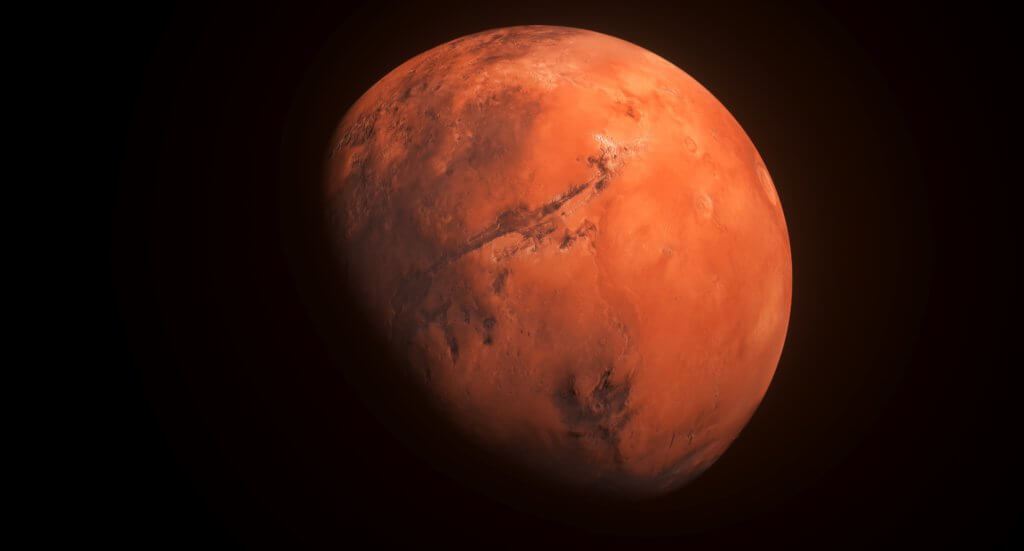OTTAWA, Ontario — Could a journey to Mars jeopardize astronauts’ health and place their mission at risk? A new study reveals that space travel alters gene expression, primarily affecting white blood cells and weakening the immune system. This finding offers an explanation as to why crew members, such as those on board the International Space Station (ISS), are more prone to infections, frequently experiencing skin rashes, and developing both respiratory and non-respiratory diseases.
“Here we show that the expression of many genes related to immune functions rapidly decreases when astronauts reach space, while the opposite happens when they return to Earth after six months aboard the ISS,” says lead author Professor Odette Laneuville, a biologist at the University of Ottawa.
NASA’s proposed round trip to Mars is slated to last approximately two years and nine months. Astronauts will spend extended periods in microgravity, confined to a small space alongside their colleagues. This duration would be more than twice the current record of 438 consecutive days in space, held by Russian cosmonaut Valery Polyakov.
The research team analyzed gene expression in white blood cells, or leukocytes, from a group of 14 astronauts, including 11 men and three women. These astronauts lived on the ISS for between 4.5 and 6.5 months from 2015 to 2019. Blood samples were taken 10 times — once pre-flight, four times in-flight, and five times post-flight.
The team discovered that over 15,400 genes were differentially expressed. Specifically, two clusters of genes, containing 247 and 29 genes respectively, changed in tandem along the timeline. These genes predominantly code for proteins related to immunity and cellular structures and functions.
“A weaker immunity increases the risk of infectious diseases, limiting astronauts’ ability to perform their demanding missions in space,” explains co-author Professor Guy Trudel, also from the University of Ottawa, in a media release. “If an infection or an immune-related condition was to evolve to a severe state requiring medical care, astronauts while in space would have limited access to care, medication, or evacuation.”

The study found that most genes in either cluster returned to their pre-flight level of expression within one year after return to Earth, and usually much sooner — typically within a few weeks. This suggests that returning astronauts have an increased risk of infection for at least one month after landing back on Earth.
Various factors, including age, sex, genetic differences, and childhood exposure to pathogens, could determine the duration of time before immune resistance fully returns to its pre-flight strength. One theory suggests that the change in leukocyte gene expression under microgravity is triggered by a “fluid shift.” This shift redistributes blood plasma from the lower to the upper part of the body, causing a reduction in plasma volume by between 10 percent and 15 percent within the first few days in space.
“The next question is how to apply our findings to guide the design of countermeasures that will prevent immune suppression while in space in particular for long duration flight,” says Prof. Laneuville. “Early detection provides opportunities for intervention, with the aim to prevent a progression towards severe symptoms.”
Humans have evolved to live under Earth’s gravity (1g), not in the weightlessness of space (0g) or the microgravity of Mars (0.3g). The fluid shifts are also linked with space motion sickness, headaches, nausea, and blurred vision, often referred to as the “puffy head bird legs syndrome.”
NASA plans to send humans to Mars by 2035. A typical trip will take seven months, with astronauts expected to stay more than a year before returning, living in microgravity for nearly three years.
This study received funding from the Canadian Space Agency and is published in the journal Frontiers in Immunology.
You might also be interested in:
- Space Travel Could Spur Changes In Genetics, Study Finds
- Volcanoes on the Moon may have left plenty of drinking water for future astronauts!
- Human colonies on Mars could be built out of space bricks made from astronauts’ urine
South West News Service writer Mark Waghorn contributed to this report.

